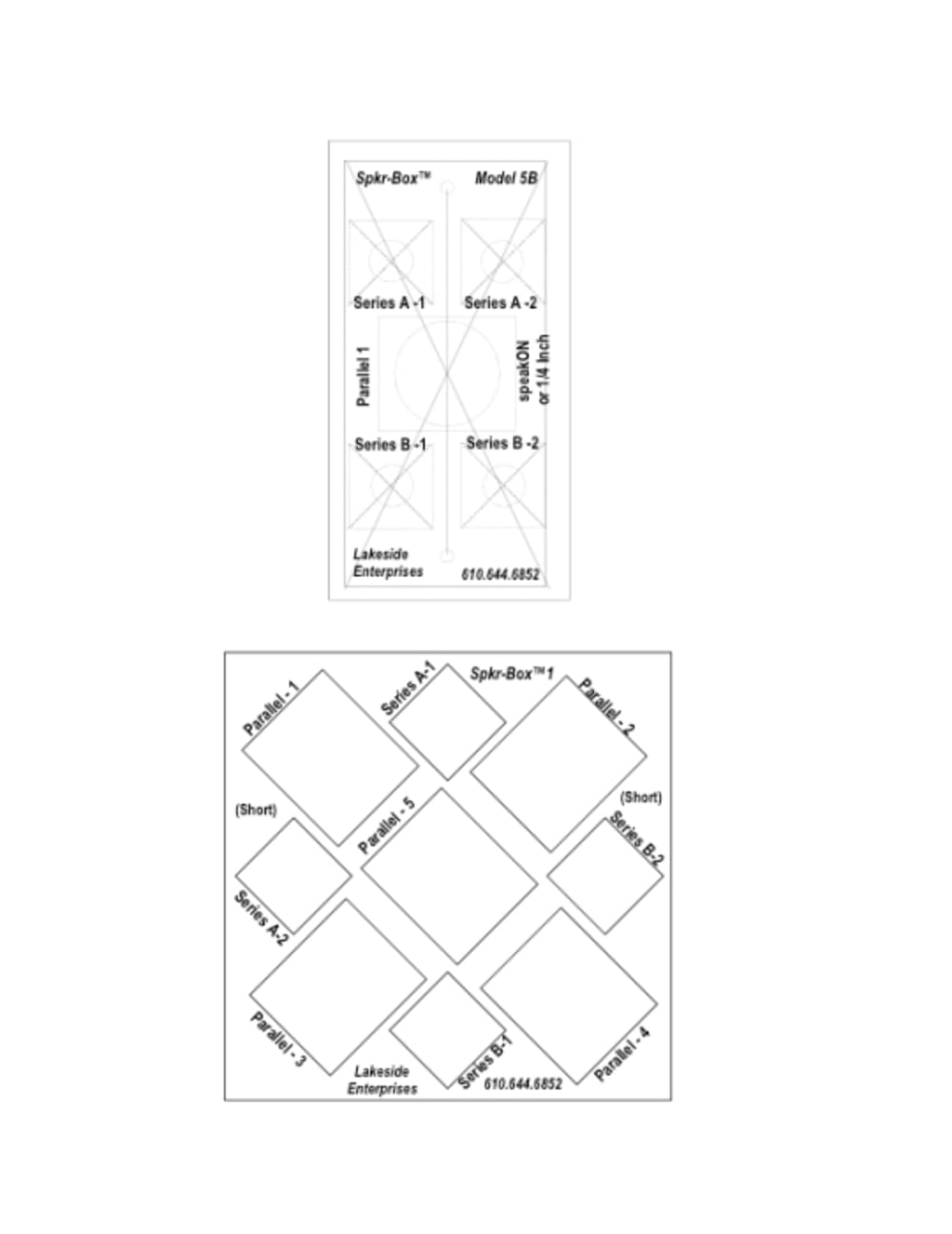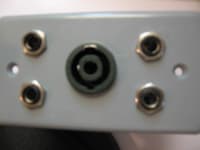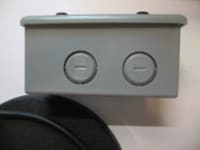In a multiple speaker arrangement, it is usually easy to parallel connect speakers (many cabinets have dual jacks); 2 parallel connected cabinets, will HALVE the load presented to the amplifier.
However, cabinets do NOT provide the capability to SERIES connect the speaker(s), which DOUBLES the impedence presented to the amplifier.
The ability to parallel AND series connect multiple cabinets is desirable when a more even or wider sound coverage is required, without exceeding the minimum amplifier load (this technique is used in the typical 4 driver speaker cabinet; 2 8-ohm speakers in
series, parallel connected with 2 other 8-ohm speakers connected in series; total load is 8 ohms).
A similar connection scheme can be implemented EXTERNALLY, by using an insulating speaker jack mounting plate, and series connecting one or more pairs of speaker jacks (signal to tip of jack 1, sleeve of jack 1 to tip of jack 2, sleeve of jack 2 to signal return; a "shorting plug" can be used to turn a series connected pair of jacks into a single parallel connected jack, for extra flexibilty.
Typical use/implementation:
1. Wiring Option 1: Typical Application: 4 8-ohm cabinets wired to present an 8-ohm load:
One combination Speakon / 1/4" jack,
parallel connected to 2 pairs of series connected 1/4" jacks (all jacks designed for 15 Amp high-current usage).
This, with 2 optional shorting plugs, would also allow the following::
1a. With ONE shorting plug: 1 series connected speaker pair, in parallel with 1 other speaker.
1b. With TWO shorting plug: 2 Parallel connected speakers.
2. Wiring Option 2: Similar to above,
but with 3 parallel jacks and 1 series connected pair.
(Typical application: 2 series connected 8-ohm monitors,
2 parallel connected 16-ohm monitors; 5.33 ohms load.)
This, with 1 optional shorting plug,
would also allow the following:
2b. With ONE shorting plug: 3 Parallel connected speakers.
3. Wiring Option 3: All 5 jacks wired in parallel (5-way junction box):
(Boxes similar to this have been available.)
Typical application:
4 parallel connected 16-ohm mic-stand monitors;
4 ohms load; lower loss and neater than typical "daisy chain" wiring of 4 monitors; Speakon or 1/4" cable connection from amp.)
For all variations (design implementation):
1. Tough thermoplastic 4" x 2" x 2" utility box and cover.
2. 1 Speakon / 1/4" combo jack, center mounted on top cover; compatibility with many newer high powered amplifiers.
3. 4 15 amp 1/4" jacks, mounted in corners of top cover.
4. 2 attached cord management loops (1/8" Poly- cord).
5.Optional 1/4" shorting plugs and 3/4" I.D. insulating sleeve(s), for series connected speaker plug(s) (attached by 1/8" cord & Velcro).
6. Top cover label.
7. All jacks on top cover plate (for shortest and lowest loss wiring and assembly ease).
Target selling prices:
Wiring Option 1: $70 (with 2 shorting plugs & sleeves).
Wiring Option 2: $60 (with 1 shorting plug & sleeve).
Wiring Option 3: $50 (no shorting plug or insulated sleeve needed).
A 9 jack box is also planned; see image 1.
Like this entry?
-
About the Entrant
- Name:David Mikowychok
- Type of entry:individual
- Hardware used for this entry:Asus Eee PC 901 NetbookSoftware used for this entry:Microsoft Publisher
- Patent status:none








